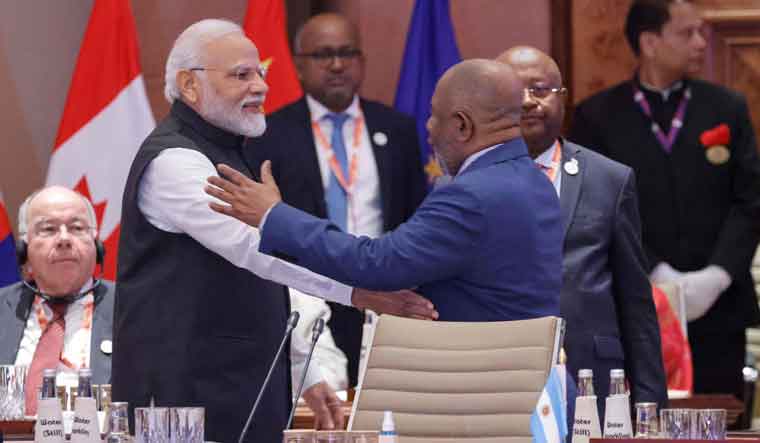In continuation of its efforts to bolster relations with African countries, India, for the first time, will post defence attaches in Ethiopia, Mozambique and Ivory Coast.
India will also appoint a new defence attache to the tiny African nation of Djibouti that serves as a major maritime gateway around the Red Sea and Gulf of Aden, and is considered as a prized location for military bases. The new defence attache in Djibouti will be the second one to hold the post in the island nation.
India's African outreach
India's ties with the African continent have witnessed a major uptick amid China's persistent efforts to expand its influence in the African countries.
In the last few years, India has been positioning itself as a leading voice, flagging concerns, challenges and aspirations of the Global South or the developing nations, especially the African continent.
The induction of the 55-nation African Union as a permanent member of the G20 was seen as major milestones of India's presidency of the grouping of the world's 20 big economies in 2023.
Several African countries have already expressed keen interest in procuring Indian military platforms, equipment and hardware.
The move comes at a time when Dammu Ravi, MEA Secretary (Economic Relations) is visiting Rwanda, Uganda, and Kenya. He is accompanied by AS (E&SA), Puneet R. Kundal.
Africa offers immense potential for economic partnerships. Indian investments in the region reached $98 billion last year, with trade totalling $100 billion.
Also, with India aiming for sustainable development and a low-carbon future, Africa, with 30 per cent of the world’s mineral reserves, is a vital ally to fulfil its goals.
Strategic ties in key regions
India's move is in line with its broader policy initiative to expand strategic ties. It is learnt that New Delhi is planning to rationalise the strength of its teams of military officials in its embassy in Moscow and high commission in London.
A few of the defence attaches posted in these two countries are set to be deployed elsewhere as part of the rationalisation process that factored in various aspects of New Delhi's foreign policy priorities and optimum use of manpower.
India is also looking at further expanding defence ties with the Philippines against the backdrop of growing global concerns over China's increasing military assertiveness in the South China Sea.
he defence and strategic ties between India and the Philippines have been on an upswing in the last few years.
In January 2022, India sealed a USD 375 million deal with the Philippines for supplying three batteries of the missile. The supplies of the missiles to the Southeast Asian country are set to begin soon.
The decision to appoint a defence attache in Armenia comes as the country in the Caucasus region shows deep interest in enhancing its defence relations with India. Last year, an arms deal to supply Indian military hardware including multi-barrel rocket launchers to Armenia was firmed up. The deal came amid the Armenia-Azerbaijan clash over Nagorno-Karabakh.
India's decision to appoint a defence attache to Poland, which is a member of the European Union, is also being considered significant. It is reflective of the desire to expand two-way defence ties.
Last year, the European Union posted a military attache to its mission in India for the first time.
A total of 16 defence attaches from the Indian Army, the Navy and the Indian Air Force will shortly assume their new positions.
(With PTI inputs)



